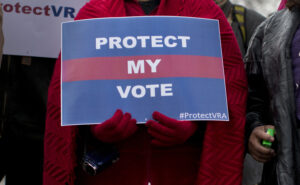Why Twitter’s Lawsuit Could Make or Break Transparency
President Obama has called his administration the “most transparent in history,” but instead of allowing companies to be completely transparent regarding their involvement in government surveillance, Washington has muzzled them.

President Obama has called his administration the “most transparent in history,” but instead of allowing companies to be completely transparent regarding their involvement in government surveillance, Washington has muzzled them, spying on their customers or users and employing gag orders to prevent them from notifying the public. As we are well aware of by now, this kind of activity was not made transparent until people like Edward Snowden made it their business to expose such practices.
Twitter announced Oct. 7 that it had filed a lawsuit against the U.S. government for not allowing it to release a transparency report that would reveal a significant level of insight on what kind of information the government has requested. Twitter approached Washington with a reporting protocol it believed would not hurt the government’s efforts to obtain national security information, but the idea was roundly rejected, the company’s blog post asserts. Twitter says, “It’s our belief that we are entitled under the First Amendment to respond to our users’ concerns and to the statements of U.S. government officials by providing information about the scope of U.S. government surveillance. …”
A previous lawsuit from Google, Microsoft, Facebook, Apple, Yahoo and others provided a slight win, with the Department of Justice declaring the companies could issue broad transparency reports that reveal a range in the thousands of how many requests for information they receive from the NSA and FBI, but the companies are still not able to say the exact number or kind of requests there were. Twitter was not part of that deal and came out against the DOJ decision at the time, claiming it was too restrictive.
“Twitter demanded permission from the DOJ to give more information, to give truthful and accurate information, without tipping off the targets of the investigations, and the DOJ said no,” Nate Cardozo, a staff attorney at the Electronic Frontier Foundation, told Truthdig. “The DOJ said the guidance we issued in January is final and what we say goes. That’s kind of ridiculous. The DOJ guidance was just made up — no court issued it, Congress didn’t issue it, it didn’t come from in the law — it just came out of the mind of a DOJ lawyer.”
One of the most important revelations to come from Snowden’s leaks is the existence of a program called Prism. An NSA presentation slide shows companies that had started being monitored under the program. Twitter was not on that list. In its blog post, Twitter said it wanted to release “what types of legal process have not been received.” Not only does Twitter want to be able to provide a number for how many requests there were and what kind of requests there were, without hindering an investigation, but it wants to be able to say if there were no requests at all. “I think what Twitter probably wants to say is if they haven’t received any — either Section 215 orders or any Section 702 orders,” Cardozo said.
Section 215 orders are part of the Patriot Act, and they allow the FBI to request that the Foreign Intelligence Surveillance Court force a company to turn over “tangible things,” which could be driver’s license records, credit card records, emails, phone metadata and much more if it could be relevant to a national security investigation. Section 702 orders are the part of the Foreign Intelligence Surveillance Act that allows the NSA to request communication information of non-U.S. citizens, though communications from American citizens are often obtained with 702 orders due to “incidental collection” that results from how wide the scope of the surveillance has become. As it stands, Twitter cannot release information on whether it has received these orders.
Another part of the Patriot Act, National Security Letters, often affect companies like Twitter. Section 505 of the Patriot Act supplements Section 2709 by including gag orders with the National Security Letters that are used to request a customer’s communication information from phone companies and Internet service providers. The Electronic Frontier Foundation won its battle to repeal that part of the Patriot Act in March 2013, when a District Court ruled the gag orders attached to the National Security Letters authorized by the Patriot Act are unconstitutional, mainly because no judge signs off on them. The National Security Letters have allowed the FBI to request information about Americans from companies hundreds of thousands of times, while preventing them from notifying the public about it. The U.S. government is appealing the District Court decision, and deliberation began in the 9th Circuit on Oct. 8. There are many different ways the government is getting information from companies like Twitter and preventing them from speaking of it.
Twitter’s recent battle to be able to release a more specific transparency report isn’t just a PR move, Cardozo contends. “I think the six tech companies that sued in the FISA court last year and then rolled over and agreed to the Justice Department’s guidance — I think that was PR. Those companies — Google, Microsoft, Facebook, Apple — declared victory when the DOJ issued the guidance. Twitter could have been a part of that, and it said very strongly at the time that it didn’t feel that was enough,” he said.
Instead, Twitter is asking for more, and there’s a lot on the line. “We all stand to lose quite a bit if this [lawsuit] doesn’t work. If Twitter loses this case, that means the government can impose restrictions on what service providers can say without Congress passing a law and without a court issuing a decision,” Cardozo said. He said that Twitter losing this battle could make it possible for the executive branch to uniformly decide how transparent companies are allowed to be — when they can speak — and he believes that that’s “not the way our democracy is supposed to work.” Once a precedent is set in court, the government can use it for future decisions, meaning Twitter’s lawsuit could affect many future edicts from the executive branch. Essentially, if it fails, everyone fails.
Independent journalism is under threat and overshadowed by heavily funded mainstream media.
You can help level the playing field. Become a member.
Your tax-deductible contribution keeps us digging beneath the headlines to give you thought-provoking, investigative reporting and analysis that unearths what's really happening- without compromise.
Give today to support our courageous, independent journalists.






You need to be a supporter to comment.
There are currently no responses to this article.
Be the first to respond.